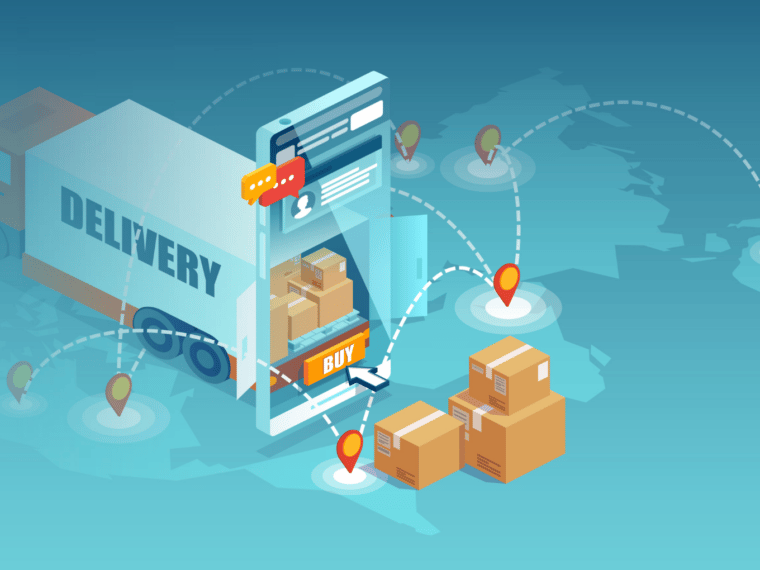
With evolving market needs and business conditions, companies can stay up to date by using digitalisation to change their current processes, implement new initiatives and even rethink consumer experiences
Technology advancements help logistics companies remain flexible to changing market conditions, meet increased customer expectations for faster shipping, and make more concerted efforts to improve environmental sustainability
These advancements benefit all aspects of the logistics industry, including trucking, international logistics, supply chain management and cargo monitoring
Technology advancement is pushing the boundaries and altering the global corporate landscape. Today, we are accustomed to having instant access to everything online and at our fingertips.
Depending on where you live, you can receive a shipment in less than a day after placing an order through a variety of innovative logistics aggregator services. Improved technology has also improved supply chain productivity, lowering costs and errors. These advancements benefit all aspects of the logistics industry, including trucking, international logistics, supply chain management, and cargo monitoring.
It is an unavoidable fact that digital technologies have profoundly altered the logistics industry today. In response to market needs and changing business conditions, businesses can now use digitalisation to change their current processes, implement new initiatives, and even rethink consumer experiences.
Here are a few benefits of developing technological tools for logistics services:
Seamless Shipment And Truck Tracking
One of the most prevalent client expectations in logistics is the ability to follow the delivery of a product from beginning to finish. Consumers of all sorts need the ability to monitor their purchases to determine when their shipment will arrive or if there are any problems en route.
As the transportation landscape changes, many supply chains are turning to freight visibility to obtain real-time, actionable data. This is due to factors such as the need to remain flexible to changing market conditions, increased customer expectations for faster shipping, and more concerted efforts to improve environmental sustainability.
Transportation visibility in real-time has become an integral component of global supply chain plans. In an intricate and unorganised sector with several interconnected partners and third parties, it is difficult to obtain sufficient knowledge about the process to make sound judgments.
The real-time digital visibility of the transportation ecosystem serves as a connecting tissue. By improving their cooperation and data-sharing partnerships, businesses can both proactively address short-term difficulties and maximise their long-term supply chain strategy.
Warehousing Woes Decimated With Digitisation
Enhanced visibility is one of the most significant benefits of digital warehousing. Manual procedures that are slow and prone to error make it difficult to comprehend inventory levels and shipment status in real-time, resulting in delays and errors. Similarly, warehouse management systems (WMS) may organise this data to offer employees instantaneous position information. This degree of visibility assists warehouses in avoiding a number of typical mishaps.
Warehouses with enhanced visibility are also more functional. This augmentation may be most prominent in choice. Workers who are familiar with the specific location of each item spend less time going through and browsing through shelves.
Over time, the data collected by WMS systems on these picking processes might indicate workflow improvements. Some WMS platforms have tools for analysing data that can help reorganise storage to make it easier to find things.
Service Dependability Secured
Another advantage provided by technology to logistics companies is the ability to use analytical maintenance tools that remotely inspect equipment and identify flaws.
Vehicle maintenance reports, created using modern sensor-based technology, help in the diagnosis of defects and the performance of required vehicle maintenance. Through timely maintenance, vehicles are kept in excellent condition, breakdowns are minimised, and service dependability is enhanced.
Revolutionary Routing Aid
The improvement of routing is yet another significant effect of technological advancements on the logistics business. With cutting-edge GPS software, there isn’t much chance that drivers will get lost or that customers will have to wait for their deliveries.
Additionally, technology may be utilised to optimise routes so that drivers take the most efficient routes to their destinations. Not only may this be determined before departure, but drivers can also be informed of a better route en route, depending on factors such as traffic accidents, road construction, or other unanticipated delays. This ability to use more efficient routes saves businesses money since it reduces vehicle mileage and fuel consumption.
Tech-Capacitated Third-Party Logistics
Logistics services form the backbone of numerous industries. Third-party logistics (3PL) aggregators are powered by modern technology to create an ecosystem which is extremely efficient at its intrinsic core.
These logistics aggregators provide a flexible choice to their clients when it comes to choosing different partners. The AI-powered screening selector can effectively process various variables to propose the best available partner for the client that can provide the best last-mile delivery option at the most optimum price.
The non-delivery report (NDR) tool also uses technological processes to reduce NDR with on-the-go communication with buyers through WhatsApp, SMS, and IVR, which streamlines the management of undelivered orders into a very hassle-free task.
The revolutionary net promoter score (NPS) was created with the help of technology and the deployment of a 3PL. This helps the client figure out how loyal their customers are and improve customer satisfaction every day by building a reputation based on service and getting feedback from customers constantly.
Vantage View
Logistics are very important to the development of the country’s manufacturing sector. Like the rest of the globe, India welcomes technological progress with open arms. Technology and logistics are two of many interconnected businesses.
In today’s world, technology is crucial. It influences our everyday lives and has a beneficial role in all industries across our planet. As a result of technological advancements and the ecommerce boom, the logistics industry is facing significant changes in its manufacturing processes.
In an industry that needs a lot of physical labour, these factors could very well lead to a major change in the way working and employment standards are set.































 Ad-lite browsing experience
Ad-lite browsing experience